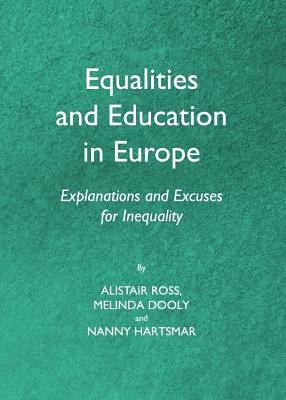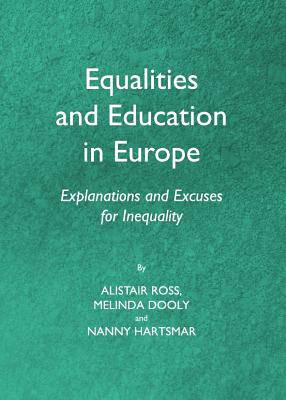
Je cadeautjes zeker op tijd in huis hebben voor de feestdagen? Kom langs in onze winkels en vind het perfecte geschenk!
- Afhalen na 1 uur in een winkel met voorraad
- Gratis thuislevering in België vanaf € 30
- Ruim aanbod met 7 miljoen producten
Je cadeautjes zeker op tijd in huis hebben voor de feestdagen? Kom langs in onze winkels en vind het perfecte geschenk!
- Afhalen na 1 uur in een winkel met voorraad
- Gratis thuislevering in België vanaf € 30
- Ruim aanbod met 7 miljoen producten
Zoeken
Equalities and Education in Europe
Explanations and Excuses for Inequality
Alistair Ross, Melinda Dooly, Nanny Hartsmar
Hardcover | Engels
€ 48,95
+ 97 punten
Omschrijving
This book is about inequities in education in Europe. The authors have worked together on an analysis of educational inequalities in Europe, which they draw on through the book: they suggest that the countries of Europe, through the European Union, are beginning to address issues of educational disadvantage on a systematic, continent-wide basis. Because of this policy concern, this book is timely in the way that it addresses social and education inequities on the scale of Europe. This is not simply an account of practices and policies. The authors' analysis of individual country and European Union policy documents will be of practical and theoretical use to the policy community and the community of practitioners who are concerned with inequities in society, and in education in particular. The authors want to do more than simply add to the literature and theory: they aspire to make an impact on how education can contribute to positively improving the lives of disadvantaged groups. While some suggest that education is doomed to simply reproduce existing social patterns and replicate social inequities, the authors believe that educational policies have the potential to challenge inequalities, and to transform lives.
Specificaties
Betrokkenen
- Auteur(s):
- Uitgeverij:
Inhoud
- Aantal bladzijden:
- 170
- Taal:
- Engels
Eigenschappen
- Productcode (EAN):
- 9781443836449
- Verschijningsdatum:
- 1/04/2012
- Uitvoering:
- Hardcover
- Formaat:
- Genaaid
- Afmetingen:
- 153 mm x 213 mm
- Gewicht:
- 212 g

Alleen bij Standaard Boekhandel
+ 97 punten op je klantenkaart van Standaard Boekhandel
Beoordelingen
We publiceren alleen reviews die voldoen aan de voorwaarden voor reviews. Bekijk onze voorwaarden voor reviews.









